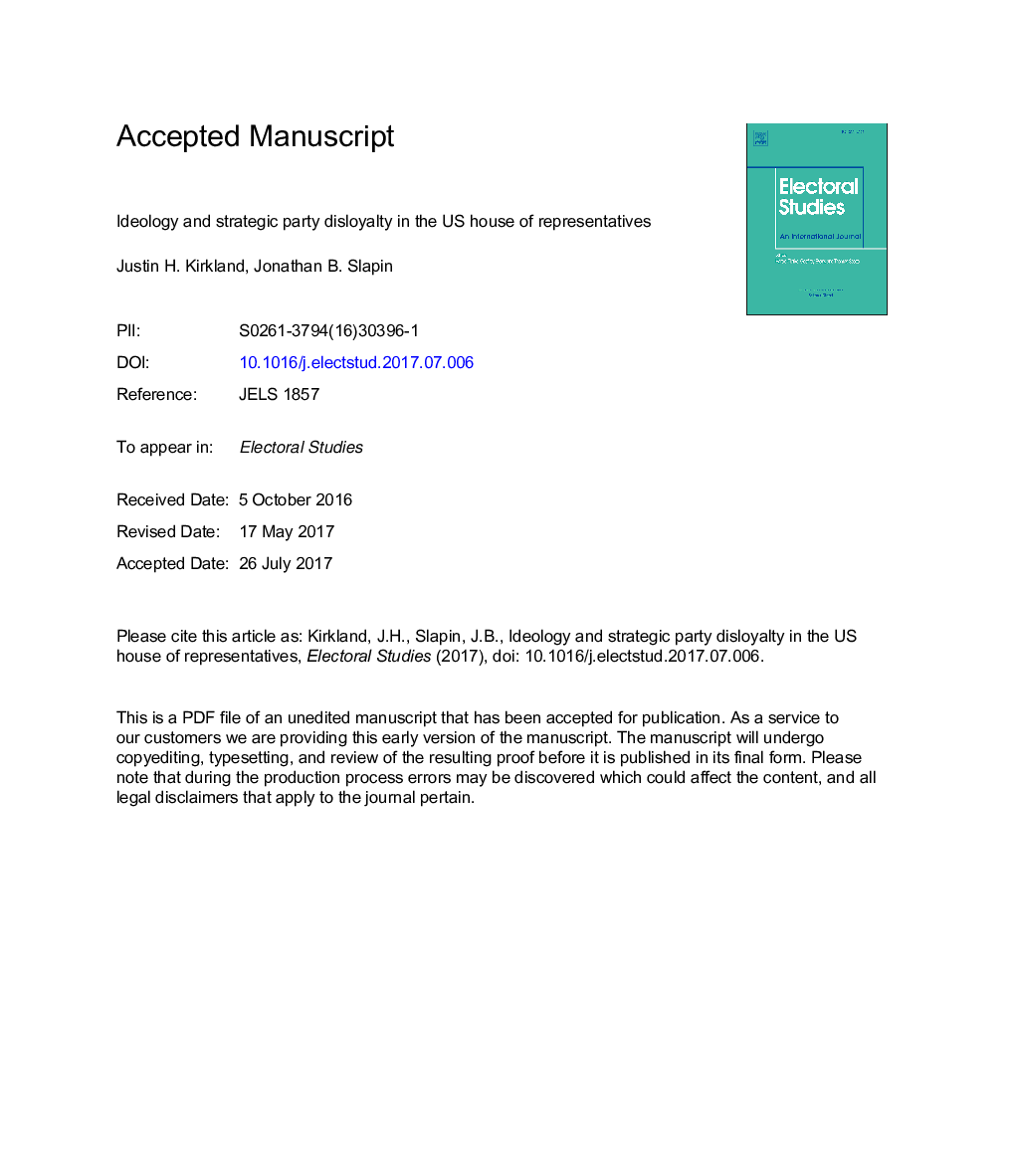| Article ID | Journal | Published Year | Pages | File Type |
|---|---|---|---|---|
| 5115483 | Electoral Studies | 2017 | 40 Pages |
Abstract
We offer a theory of strategic party disloyalty to explain roll call voting in the US House. Our theory suggests that ideologically extreme legislators become markedly less loyal to their party when it controls the majority. They stake out positions that align with the views of their extreme constituents when policy is likely to move in their direction. In contrast, ideological moderates become noticeably more loyal when they transition to the majority. Examining 35 years of ideal point estimates and measures of party unity on roll calls, we find clear evidence that member strategy, ideology, and legislative agenda setting interact to structure the frequency of defections. Further, we find evidence that defection and ideology interact to influence subsequent electoral outcomes.
Keywords
Related Topics
Social Sciences and Humanities
Social Sciences
Geography, Planning and Development
Authors
Justin H. Kirkland, Jonathan B. Slapin,
